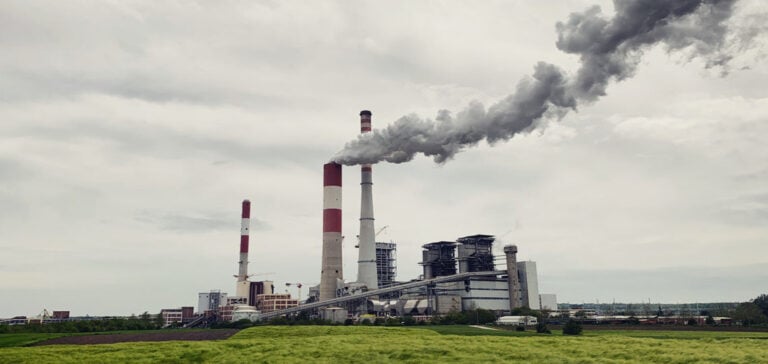Electricity, a fundamental need of the modern age, finds an unusual source in Serbia: coal. In the Kolubara basin, one of the country’s largest mining sites, thousands of workers extract millions of tonnes of coal every year. This fossil resource is at the heart of Serbia’s electricity production, generating almost 70% of the country’s energy. However, as the world moves towards energy transition, Serbia remains deeply rooted in its dependence on coal.
Tamnava-Ouest power plant
The Tamnava-West coal-fired power plant, some 50 km southwest of Belgrade, is a concrete example of this dependence. In operation since the 1990s, it continues to operate with no sign of imminent closure. Despite emission reduction plans, coal’s share of Serbia’s energy mix has remained unchanged for three decades.
This situation offers Serbia a clear economic advantage, with one of the lowest electricity prices in Europe. Last June, a kilowatt-hour cost an average of just 0.096 euros in Serbia, compared with the EU average of 0.289 euros.
However, this dependence on coal is not without consequences. Sulfur dioxide (SO2) emissions from coal exceed the authorized limits for Serbian thermal power plants by five to six times. This led the Renewables and Environmental Regulatory Institute (RERI) to seek legal recognition of the harmful effects of these emissions on health and the environment.
The Uncertain Transition
Despite calls to reduce dependence on coal, the transition to cleaner energy sources remains uncertain in Serbia. Plans and strategies are discussed, but concrete decisions are slow to materialize. The target of reducing coal use by 25% by 2030 remains unclear, leaving doubts as to whether Serbia really wants to move away from coal.
Vladimir Radosavljevic, vice-president of the Trade Union of Serbia – Sloga, in charge of industry, stresses that the transition to alternative energies would be beneficial for health, the environment and miners’ working conditions. However, he fears that abandoning coal will lead to a large number of redundancies, complicating the situation.
Expansion and Concerns
Meanwhile, Serbia is planning to open a new unit at its coal-fired power plant in Kostolac (east), financed by China. This expansion also involves extending the Drmno coal mine in the same region. However, concerns are emerging about emissions, even with a desulfurization unit, exceeding Serbia’s commitments.
The uncertain future of coal in Serbia
Serbia has pledged to achieve carbon neutrality by 2050, but the persistence of coal in the country shows the challenges faced even in the heart of Europe in abandoning this fossil fuel source. The debate on the future of coal mining in Serbia remains open, with no clear clarification on future plans.






















